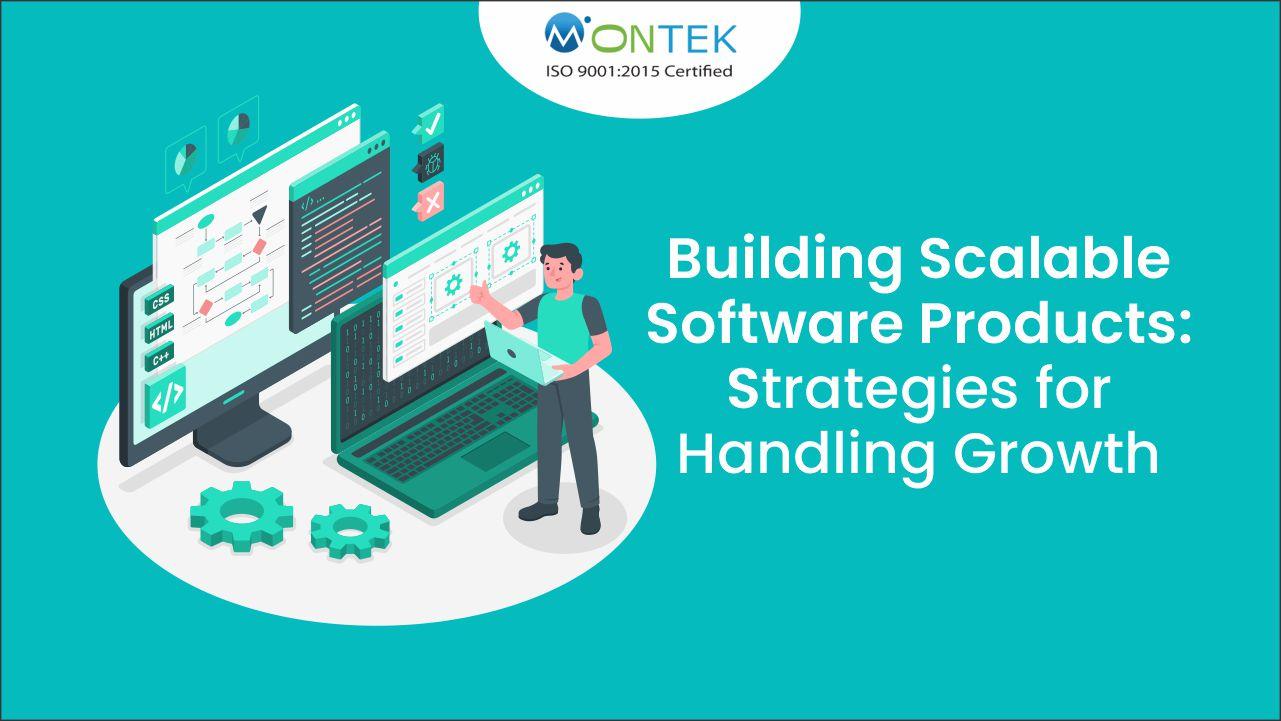
05
JulBuilding Scalable Software Products Strategies for Handling Growth
In today's digital landscape, building scalable software products is crucial for businesses to meet the demands of a rapidly evolving market and ensure long-term success. The ability of a software product to manage growing workloads, user demands, and data volumes without sacrificing performance or the user experience is referred to as scalability. In this blog, we explore strategies and best practices for building scalable software products with the best product development agency in India that can effectively handle growth and scale with your business.
Design for Scalability from the Start :
Scalability should be a foundational principle in the design and architecture of your software product. By considering scalability in the early stages, you can avoid costly rework in the future. Design a modular, loosely coupled architecture that allows for easy scalability and can accommodate future growth without significant disruptions. Use technologies and frameworks that support scalability, such as cloud computing and microservice architecture.
Embrace Cloud Computing :
Cloud computing offers immense benefits for scalability. Leveraging cloud infrastructure allows you to scale your software product horizontally or vertically based on demand. With cloud services, you can easily allocate additional resources, such as computing power and storage, to handle increased workloads. Cloud platforms also provide scalability features like auto-scaling, load balancing, and elastic storage, ensuring your software product can handle peak periods and sudden spikes in user traffic.
Utilize Distributed Systems :
Distributed systems enable scalability by distributing workloads across multiple machines or servers. By breaking down your software product into smaller, manageable components, you can scale each component independently. Implementing distributed databases, caching mechanisms, and message queues can help distribute data and processing, enhancing the scalability of your product. However, it's crucial to design and manage distributed systems carefully to ensure data consistency and minimize communication overhead.
Optimize Performance :
Efficient performance is essential for scalable software. Conduct thorough performance testing and optimization to identify bottlenecks and areas for improvement. Fine-tune your code, database queries, and system configurations to maximize performance. Implement caching mechanisms to reduce database loads and utilize content delivery networks (CDNs) for delivering static assets efficiently. A well-optimized software product can handle increased traffic and user demands without sacrificing performance.
Implement Horizontal and Vertical Scaling :
Horizontal scaling involves adding more instances or servers to handle increased workloads. By distributing the load across multiple servers, you can achieve greater scalability. Vertical scaling, on the other hand, involves upgrading the resources (e.g., CPU, memory) of existing servers to handle higher workloads. Choosing the right scaling strategy depends on the nature of your software product and the anticipated growth patterns. A combination of horizontal and vertical scaling may provide the best scalability and cost-effectiveness. A good codeigniter development agency in India can help you set the right scaling for your software product
Leverage Caching and Content Delivery Networks :
Caching frequently accessed data and utilizing content delivery networks (CDNs) can significantly improve the scalability of your software product. Caching reduces the need to repeatedly fetch data from databases or external APIs, improving response times and reducing the load on backend systems. CDNs store and serve static content from edge servers located closer to end-users, minimizing latency and reducing the load on your infrastructure.
Continuous Monitoring and Optimization :
Scalability is not a one-time task but an ongoing process. Implement robust monitoring and analytics tools to track system performance, resource utilization, and user behavior. Monitor key performance indicators (KPIs) such as response times, throughput, and error rates. Use the insights gathered to identify performance bottlenecks and areas for optimization. Regularly review and optimize your software architecture, infrastructure, and codebase to ensure optimal scalability as your business grows.
Building scalable software products requires a combination of thoughtful design, strategic planning, and continuous optimization. By considering scalability from the start, embracing cloud computing, utilizing distributed systems, optimizing performance, and implementing scaling strategies.
Are you looking for a product development company in Pune? Montek Services is the best of all. We have the top developers with years of experience who help our clients by developing the best software product as per their business needs.
Contact Montek Services today to know more about our product development services.
Author -

Software Engineer

